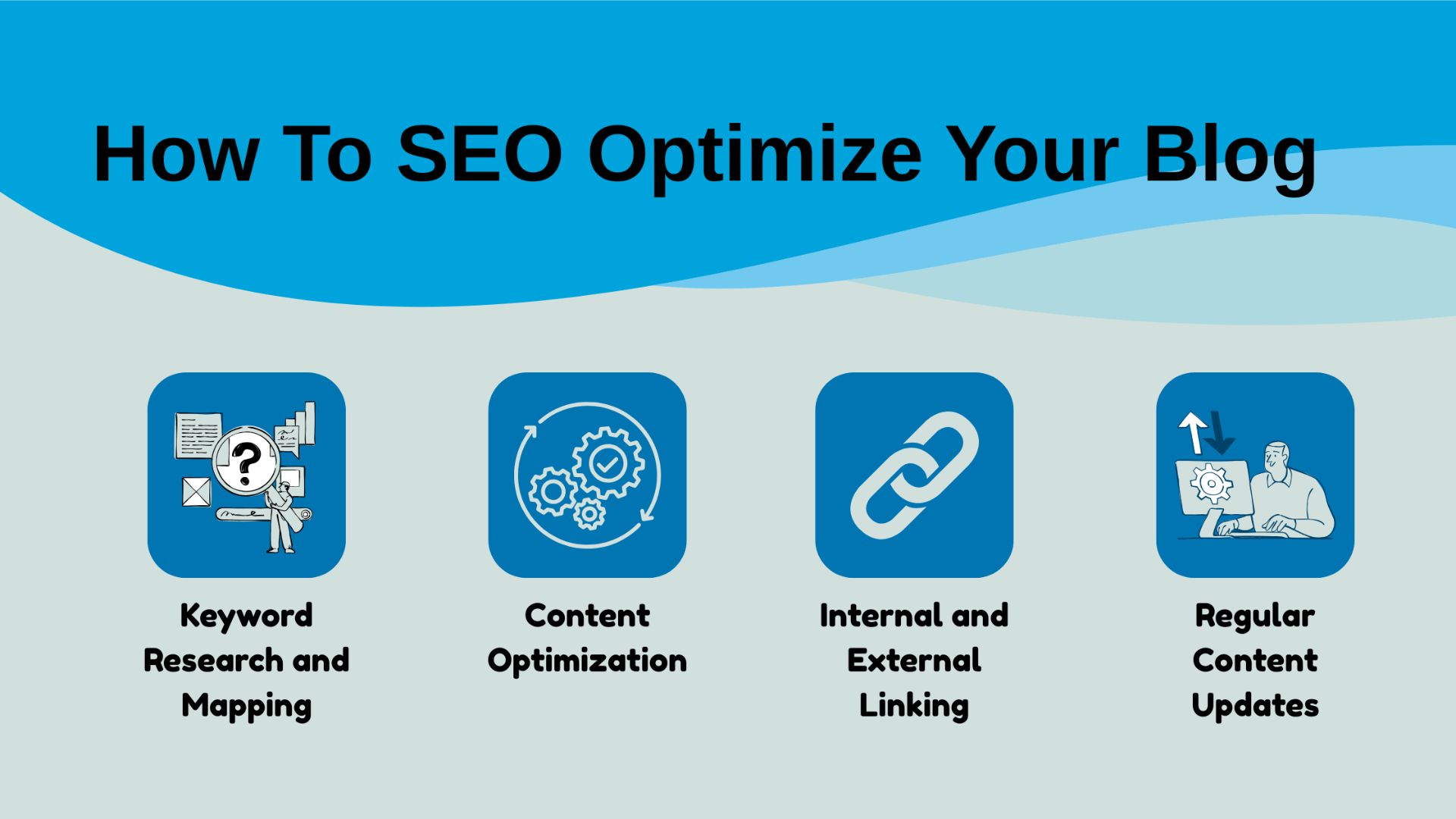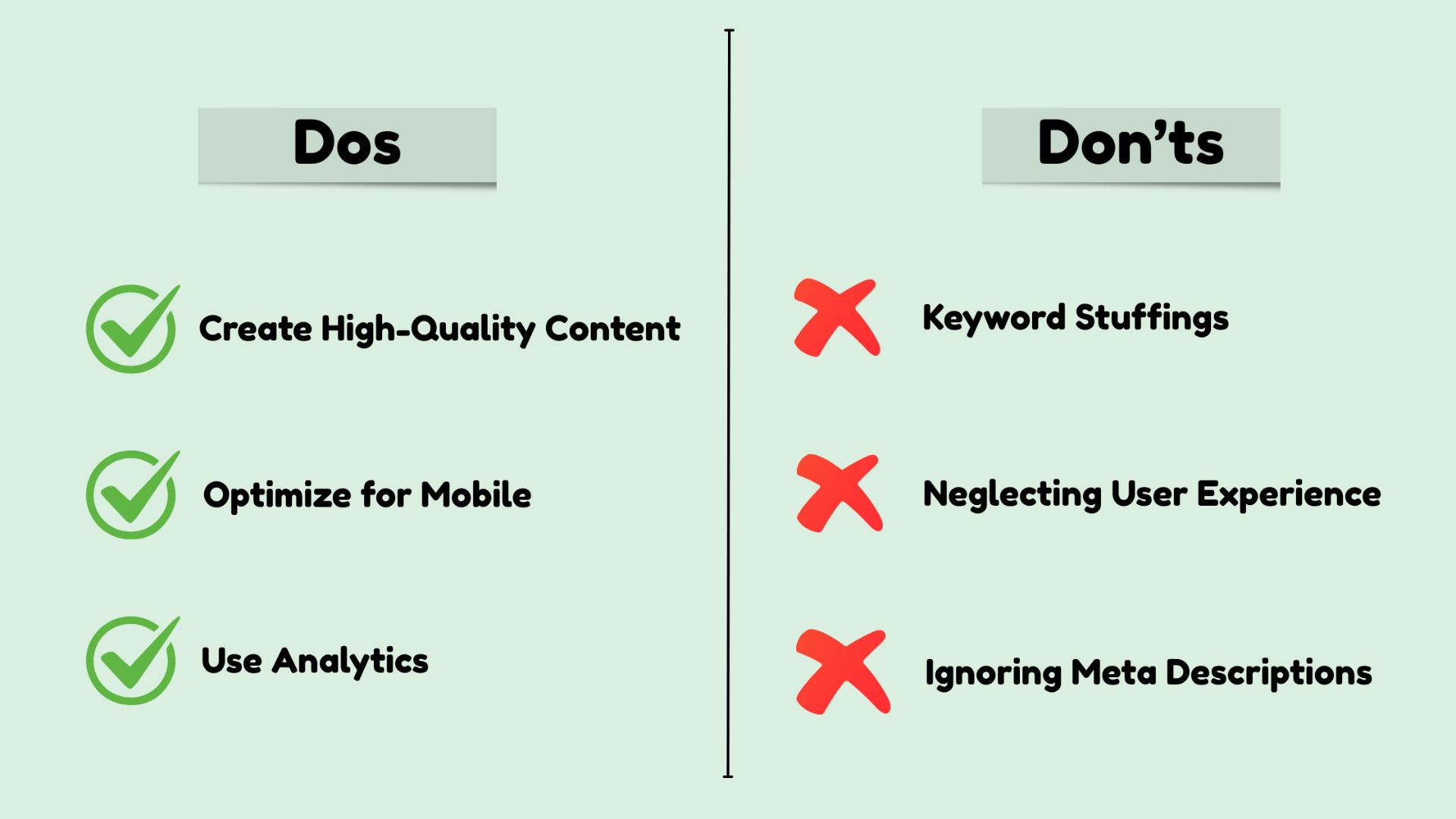In the digital age, a robust online presence is crucial for success. Central to this is Search Engine Optimization (SEO), a strategy that enhances your website’s visibility on search engines, driving organic traffic and fostering growth. This comprehensive guide delves into setting effective SEO goals, understanding the mechanics of SEO, optimizing your blog accordingly, leveraging AI tools, and adhering to best practices.

The Importance of SEO
SEO is the art and science of tailoring your website to rank higher in search engine results pages (SERPs). Its significance lies in:
- Increased Visibility: Higher rankings lead to greater exposure, making it easier for potential customers to find you.
- Cost-Effective Marketing: Organic traffic reduces the need for expensive paid advertising.
- Enhanced User Experience: SEO involves optimizing site structure and content, leading to a better user experience.
- Credibility and Trust: Websites that appear at the top of search results are often perceived as more trustworthy.
How SEO Works
Search engines like Google use complex algorithms to determine the relevance and authority of web pages. Key factors influencing these algorithms include:
- Keyword Usage: Incorporating relevant keywords helps search engines understand your content’s topic.
- Site Structure and Navigation: A well-organized site aids search engines in crawling and indexing your pages.
- Backlinks: High-quality inbound links from reputable sites signal authority and trustworthiness.
- Mobile-Friendliness and Page Speed: User-friendly and fast-loading sites rank better.
Setting Effective SEO Goals
Establishing clear, measurable goals is foundational to any successful SEO strategy. Effective goals are:
- Specific: Clearly define what you aim to achieve.
- Measurable: Ensure you can track progress with quantifiable metrics.
- Achievable: Set realistic targets based on your resources and market conditions.
- Relevant: Align goals with your overall business objectives.
- Time-Bound: Set a deadline for achieving your goals.
For instance, instead of a vague goal like “increase website traffic,” aim for “increase organic traffic by 20% over the next six months.”
Modifying Your Blog for SEO
Optimizing your blog involves several key practices:
- Keyword Research and Mapping:
- Identify Relevant Keywords: Use tools like Google Keyword Planner to find terms for which your target audience searches.
- Assign Keywords to Content: Map specific keywords to appropriate blog posts to avoid overlap and ensure comprehensive coverage. This process, known as keyword mapping, helps in creating a logical site structure and prevents keyword cannibalization. Learn more about keyword mapping here.
- Content Optimization:
- Quality Content: Create informative, engaging, and original content that addresses your audience’s needs.
- On-Page SEO: Include keywords in strategic places like titles, headings, and meta descriptions. Ensure proper use of header tags (H1, H2, H3) to structure your content effectively. Explore on-page SEO techniques.
- Internal and External Linking:
- Internal Links: Connect related blog posts to keep readers engaged and help search engines understand your site’s structure.
- External Links: Link to authoritative sources to enhance credibility and provide additional value to readers.
- Regular Content Updates:
- Refresh Old Posts: Update outdated information and statistics to keep content relevant. This practice can significantly boost your rankings. Discover how to update content for SEO.

Leveraging AI in SEO
Artificial Intelligence (AI) has revolutionized SEO practices:
- Content Generation: AI tools can assist in creating SEO-friendly content efficiently. For example, platforms like Jasper and Copy.ai generate high-quality drafts, saving time and resources. Explore top AI SEO tools.
- Keyword Research: AI-powered tools analyze vast amounts of data to identify valuable keywords and trends, enhancing your content strategy.
- Performance Analysis: AI can monitor your website’s performance, providing insights into user behavior and suggesting areas for improvement.
Dos and Don’ts of SEO
Dos:
- Create High-Quality Content: Focus on delivering value to your audience with well-researched and engaging content.
- Optimize for Mobile: Ensure your site is responsive and provides a seamless experience across devices.
- Use Analytics: Regularly monitor your site’s performance using tools like Google Analytics to inform your strategy.
Don’ts:
- Keyword Stuffing: Avoid overloading your content with keywords, as this can lead to penalties from search engines.
- Neglecting User Experience: A site that’s difficult to navigate or slow to load will deter visitors and harm rankings.
- Ignoring Meta Descriptions: These provide a summary of your content in search results and can influence click-through rates.

Case Studies: Brands Excelling in SEO
- Glossier: This beauty brand effectively uses its blog to drive traffic and engage customers. By creating content that aligns with their products and audience interests, they’ve built a strong online community. See Glossier’s blog.
- Outdoor Voices: Their blog, “The Recreationalist,” offers lifestyle content that resonates with their target demographic, enhancing brand loyalty and SEO performance. Explore The Recreationalist.
- Amazon: As a giant in e-commerce, Amazon dominates SEO by optimizing for a vast range of search terms and employing sophisticated internal linking strategies. Their product pages are meticulously optimized, leveraging user-generated content like reviews to boost relevance and authority. Learn more about Amazon’s SEO strategies.
Conclusion
Mastering SEO is an ongoing process that requires strategic planning, continuous learning, and adaptation to evolving algorithms. By setting clear goals, optimizing your blog content, leveraging AI tools, and adhering to best practices, you can enhance your online visibility and achieve sustainable growth. Remember, the ultimate aim is to provide value to your audience, and SEO is the bridge that connects your content to those seeking it.
Contact Us
For more information on optimizing your blog and mastering SEO, feel free to contact us at Quickbuzz. We’re here to assist you in leveraging the full potential of SEO for your blog!